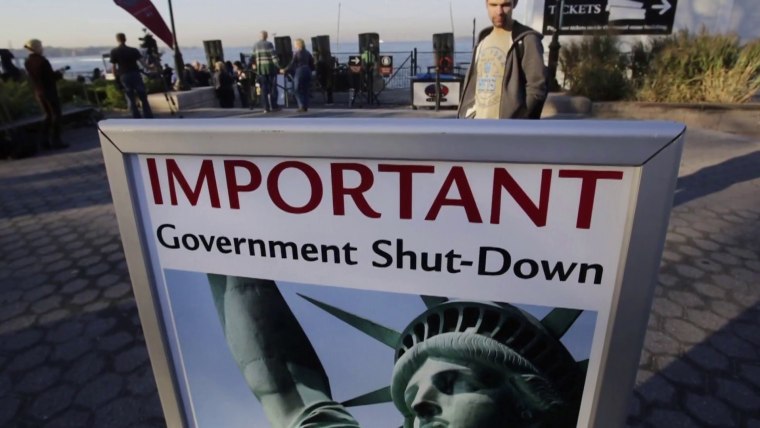WASHINGTON — After two embarrassing failed votes last week, House Republicans on Tuesday regrouped and successfully voted to open debate on a package of spending bills they hope will unlock votes to keep the government from shutting down at the end of the week.
The rule passed 216-212, with Rep. Marjorie Taylor Greene, R-Ga., as the sole Republican to vote against it.
A federal shutdown early Sunday morning is still highly likely given broad disagreements between the GOP-controlled House and Democratic-led Senate over funding levels and aid for Ukraine.
But if Speaker Kevin McCarthy, R-Calif., can rally his troops behind four partisan appropriations bills this week, he believes he can put Republicans in a better negotiating position with the congressional Democrats and the White House heading into a potential shutdown.
“We’re going to work through appropriations bills this week. … We’ll have a process to get through a large chunk of funding, significantly more than the Senate’s been able to get through,” said a top McCarthy ally, Financial Services Chairman Patrick McHenry, R-N.C. “And that should put us in a better negotiating position for what is inevitably going to be the end-of-year negotiations around funding the government.”
The four bills would fund the Departments of Defense, Homeland Security and Agriculture, as well as state-foreign operations. Adhering to the demands of House conservatives, the bills would cut billions of dollars despite a bipartisan debt and spending deal earlier this year between McCarthy and President Joe Biden.
McCarthy reiterated Tuesday that he still wants to bring a short-term funding bill, known as a continuing resolution or CR, to the floor this week, even though a number of conservatives in his conference have vowed to vote it down.
“It’d be this week,” McCarthy said of the CR. “I’d like to possibly, I want to see how fast we can do these bills and then put it on.”
The Senate introduced its own CR on Tuesday evening that does not include steep cuts that House Republicans want and does include roughly $6 billion in Ukraine aid that many House Republicans are opposed to.

